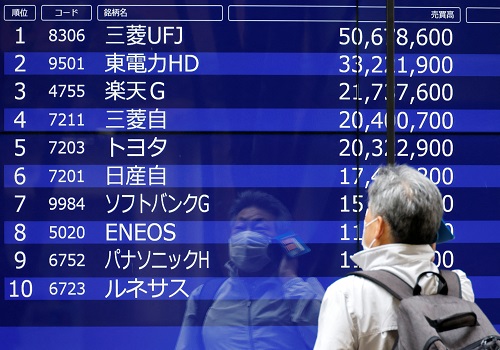24 Years of Market Data Union Budgets Poor Predictors of Annual Equity Returns, reveals a Capitalmind study

According to a recent study conducted by Capitalmind Financial Services Pvt. Ltd., a SEBI registered portfolio manager, Indian CNX500 has provided a median return of -0.1% across 24 budget days since the year 2000.

The best return on the budget day was observed at 4.1% on 1st February 2021, and the worst return was recorded at -5.4% on 6th July 2009.
Negative median one-month and one-week prior returns of -2.2% and -1.4% respectively indicate watchful behaviour leading up to the announcement. The returns one year prior and one year after are symmetrical.

Market behaviour one week before and one week after budgets are interesting mirror-images of each other as investors seem to reduce exposure due to uncertainty up to budget day, negative 63% of the time, followed by re-entering once the uncertainty recedes after the event, positive 62% of the time.
However, if one invests on the day before the budget, returns one month later indicate a coin toss, with a 54% probability of being negative. Once you increase the time horizon the odds of positive returns on the one-year time frames are consistent with the overall equity market behaviour, i.e. positive in 2-3 of any 4 years.
Anoop Vijaykumar, Investments & Head of Research, Capitalmind, said “What our study implies is that while there tends to be significant volatility leading up to and immediately after the budget based on expectations, the longer term is driven by the underlying fundamentals of corporate earnings growth. Long-term investors should avoid making significant equity allocation decisions based on expectations or announcements made in the budget. Instead, they’d be better served by staying the course with their investment plans, keeping their financial goals in mind.”
Capitalmind study cited that Union Budgets are poor prediction of annual returns and has explained the inference through four unintuitive examples of how markets reacted to budget announcements:
* In the 2003 Union Budget, the NDA government prioritised reducing the deficit by introducing new taxes, including state-level VAT and service tax. The CNX500, the broad market index of the top 500 companies in India, ended the day up 0.5%. A month later, the index was down 6%. A year later, the market had doubled.
* On July 8, 2004, in the first budget presentation of the incoming UPA I government, Finance Minister P. Chidambaram announced the abolishment of the Long-Term Capital Gain tax on equities and the introduction of Securities Transaction Tax (STT). All gains from holding stocks and equity mutual funds longer than a year would be exempt from tax, a significant plus for investors. The CNX500 fell 3.2% that day.
* In the 2015-16 budget, Finance Minister Arun Jaitley announced a four-year roadmap to reduce the corporate tax rate to 25%, a direct boost to company earnings and therefore potential shareholder returns. The CNX500 ended the day marginally up 0.4%. A month later, the market was down 3.6%; a year later, it was down 18.7%.
* Nearly 14 years after LTCG was removed, on February 1, 2018, NDA Finance Minister Arun Jaitley re-introduced a 10% Long-Term Capital Gain Tax on gains over INR 1 Lakh annually. The CNX500 ended the day barely unchanged, 0.1% down. The index was down 4.6% a month later, roughly where it ended a year later, first rising, then falling dramatically before partially recovering.

Above views are of the author and not of the website kindly read disclaimer






















